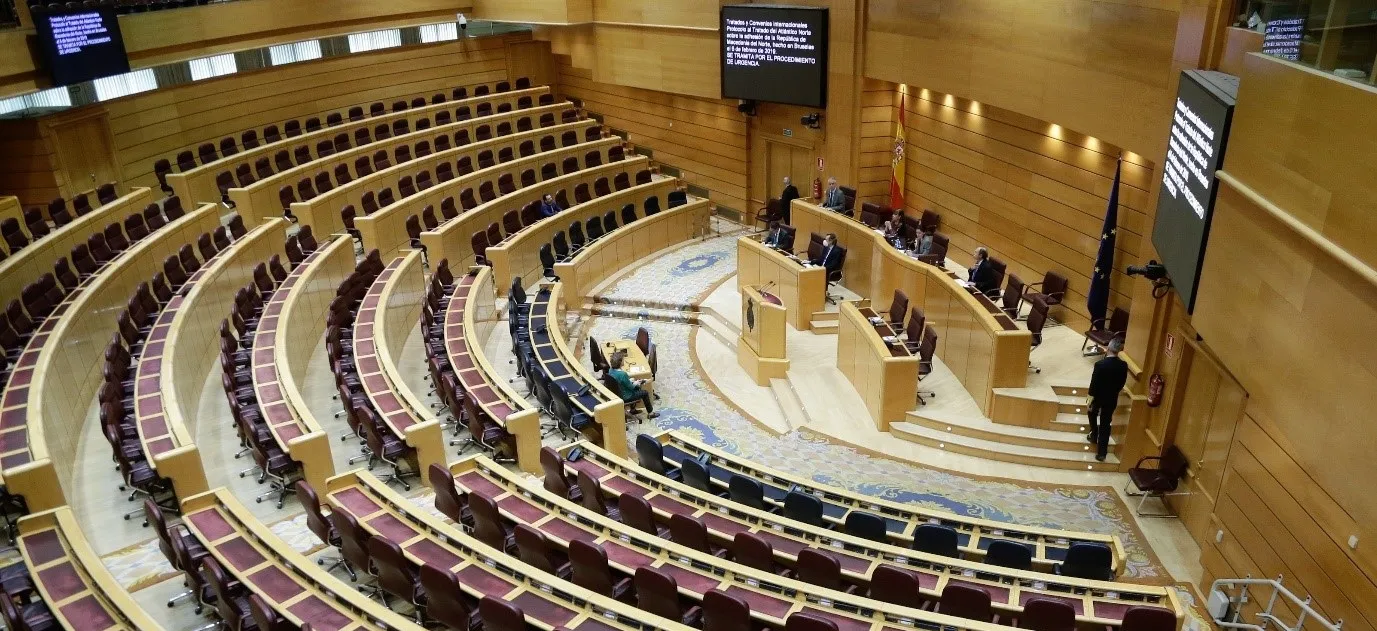Why collective parliamentary governance is more important than ever in a pandemic

Parliaments and Crisis is the new Parliamentary Primer produced by the INTER PARES project, funded by the European Union and delivered by International IDEA. Written in the context of the coronavirus pandemic, the Primer looks at how democratic parliaments play a crucial role in making good decisions and protecting citizens’ rights during a crisis.
The coronavirus pandemic has deeply impacted how we are governed. For example, Chile has amended its constitution to permit virtual parliamentary debate, Ireland’s parliament added protections in emergency legislation for people without permanent homes, and Brazil’s Senate enabled citizens to make comments in its online session platform. These examples show how democracies have had to adapt to operating under extreme time pressure, without losing the advantages of transparency, citizen voices, and effective policy feedback loops that make democracy the most effective and just governance system.
As the deadly nature of COVID-19 became apparent, states around the world had to rapidly ramp up health care responses, put in place social distancing measures to reduce infection spread, and provide economic support to growing numbers of people who lost work and income.
Parliaments are the core democratic institutions representing citizens throughout the policy cycle; in creating legislative rules that govern society, in ensuring that government implements legislated programmes effectively and fairly, in voting the use of taxpayers’ resources to pay for government services, and in ensuring the diverse views of citizens are heard at every stage. During a crisis, parliaments must carry out the same functions, but more rapidly, and in often adverse circumstances.
During the pandemic, democracies that acted effectively to manage health impacts were able to avoid draconian restrictions on human rights. South Korea, which was initially worst hit after China, was able to control the epidemic and restrict deaths to under 250 by 29 April, without introducing emergency powers legislation. South Korea even held a parliamentary election in April with a turnout of 66 per cent, the highest in 28 years. Finland’s parliament rigorously reviewed emergency powers legislation and amended it to enhance human rights protections. By the end of April, the country had one of the lowest COVID-19 mortality rates in Europe.
Based on a survey of actions taken by parliaments around the world during March 2020, Parliaments in Crisis explores how parliaments around the world have responded to the coronavirus pandemic, within a broader exploration of how parliaments can protect democratic principles and ensure good governance during crises. The Primer explores the different steps parliament took to: enable their continued functioning including through innovative solutions such as virtual sessions; give governments necessary powers to protect public health; conduct effective oversight of government actions particularly to ensure respect for citizen rights; and learn lessons from the crisis to feed into better planning and decision-making.
Parliaments are faced with four sometimes conflicting imperatives during a crisis. First, they must make quick but properly thought-out decisions, particularly on any emergency powers that governments need to be able to act quickly against the pandemic. Second, they need to ensure continuity of constitutional governance and the balance of powers required by representative democracy. Third, they must set an example as an institution through observing health requirements like social distancing. Finally, MPs and staff have a right, and a duty, to protect themselves personally.

Most surveyed parliaments quickly took measures to address these different priorities, and typically, their measures evolved and improved as the crisis continued. The Primer documents examples from different countries around the world, ranging from basic safety measures such as limiting public access to the parliament to high-tech solutions like virtual plenary sessions.
The Primer focuses particularly on two aspects of parliaments’ responses. First, it looks at how parliaments ensured that emergency measures considered the needs of all parts of the population, and also that any emergency government powers were both limited in time and scope, and subject to proper parliamentary oversight. In several documented cases, parliaments amended proposed legislation to provide greater human rights protections. Second, the primer examines how parliaments implemented innovative solutions to enable virtual functioning, both through using conferencing technologies, and in adapting parliamentary rules, and even in one case the national constitution, to permit online debates and voting.
The Primer concludes in exploring how parliaments can play a key role both in reviewing how effectively government responded to the crisis, identifying lessons to be implemented in improved crisis and disaster planning, and also in launching inclusive national discussions on the longer-term implications of crises and disasters. Parliaments, representing diverse sectors and interests within a country, are uniquely placed to host inclusive discussion on deeper questions such as the relationship between disasters such as the pandemic and the sustainability of current economic models nationally and globally.
The Primer is one of several initiatives that INTER PARES is taking to support emerging parliaments deal with the pandemic and its aftermath. A series of best practice examples are being recorded and disseminated through the INTER PARES website, a comprehensive database of parliamentary responses globally is being collected to be presented through accessible infographics, and project partner parliaments around the world are being offered support through virtual technologies including e-learning courses.
About the project: INTER PARES | Parliaments in Partnership – EU Global Project to Strengthen the Capacity of Parliaments is the first global parliamentary project of its kind. Funded by the EU and implemented by International IDEA, its purpose is to strengthen the capacity of parliaments in partner countries, by enhancing their legislative, oversight, representative, budgetary and administrative functions. It focuses both on elected Members of Parliament (MPs), particularly in their capacity as members of parliamentary committees and on the staff of parliaments' secretariats.




